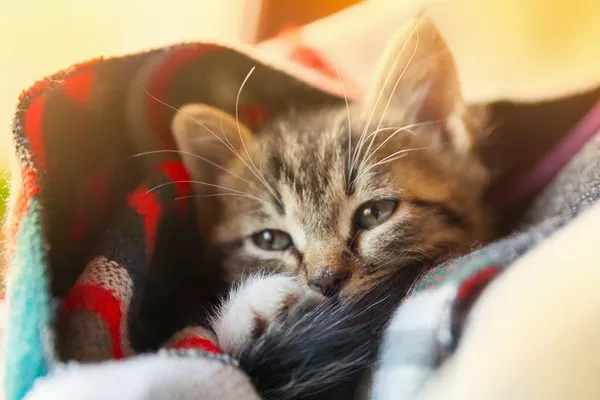The British Shorthair is a beloved cat breed known for its charming appearance and friendly demeanor. With its origins dating back to ancient times, this breed has a rich history and has captured the hearts of cat enthusiasts worldwide. In this article, we will delve into the detailed profile of the British Shorthair, exploring its characteristics, temperament, grooming needs, health considerations, and essential care guidelines to ensure a happy and healthy life for your feline companion.
The British Shorthair appearance characteristics
The British Shorthair is a medium to large cat with a strong, sturdy body. They have round heads with large, expressive eyes in a variety of colors, including copper and blue. One of the most iconic features of the breed is the lovely round cheeks, which give them a sweet and endearing expression. The ears of British shorthair cats are small, erect on the sides of the head, slanted forward, and round in shape. They have short, dense coats that are thick in texture and provide great warmth retention. British Shorthairs come in a wide variety of coat colors and patterns, including solid, tabby, bicolor, and more. These brightly colored coats, combined with their characteristic round faces and large eyes, make the British Shorthair very attractive in appearance. In addition to the head and coat, the British Shorthair cat also has a thick short tail, which is of moderate length and matches the body. Their strong limbs and large, round feet give them great balance and jumping abilities. Known for their adorable appearance and friendly disposition, the British Shorthair is a much-loved cat breed overall. Whether in a family or a single person, they make excellent companions, bringing endless joy and warmth to people.
The British Shorthair temperament and Personality
The British Shorthair is widely loved for its unique temperament and personality. Usually mild-mannered and dislikes being overly agitated or excited. They are calm and calm, not easily disturbed by the external environment. This breed generally gets along well with people and other pets. Friendly and adaptable, they are great for family life. Although British Shorthairs love to interact with people, they are also somewhat independent. They don’t particularly need the constant attention and companionship that some breeds do, so they’re perfect for those with busy jobs. British Shorthairs generally don’t meow as much as other cat breeds. Their voices are gentle, and more often they use actions to express their needs. While British Shorthairs are somewhat independent, they also enjoy a bond with their owners. They actively seek attention and affection from their owners, and enjoy human company. British shorthair cats have a calmer personality, but they also love to play with their owners. Toys such as cat teasers and small balls can stimulate their interest and enhance interaction with their owners. This breed has relatively high adaptability to environmental changes and new things. When a house is moved or a new family member is introduced, they usually adapt quickly to their new surroundings. The British Shorthair is a peaceful, friendly, easy-going breed whose closeness to humans and low-key personality make them ideal family companions. Whether in a family or alone, British Shorthairs bring warmth and happiness and make lovely plush companions.
Cats grooming Needs
Due to its short coat, the British Shorthair is relatively low-maintenance when it comes to grooming. Regular brushing will help remove loose hair and prevent matting. Additionally, it is essential to pay attention to their dental health, as dental issues can arise in any cat breed. Regular teeth brushing and dental check-ups are crucial to maintaining good oral hygiene.
Cats Health Considerations
The British Shorthair is generally a healthy and robust breed with a long lifespan. However, like all cats, they may be susceptible to certain health conditions. Some of the common health issues observed in this breed include hypertrophic cardiomyopathy (HCM), a hereditary heart condition, and polycystic kidney disease (PKD), a genetic kidney disorder. Regular veterinary check-ups, a balanced diet, and an active lifestyle can go a long way in promoting overall health and longevity.
Conclusion
The British Shorthair is a delightful feline companion that brings joy and charm to any household. With its unique appearance, amiable temperament, and minimal grooming needs, it is no wonder that this breed has captured the hearts of cat lovers worldwide. By understanding their characteristics, providing proper care, and offering love and attention, you can enjoy a long and fulfilling bond with your beloved British Shorthair. Remember, responsible pet ownership and regular veterinary check-ups are key to ensuring a happy and healthy life for your furry friend.
Repated Topics:


























